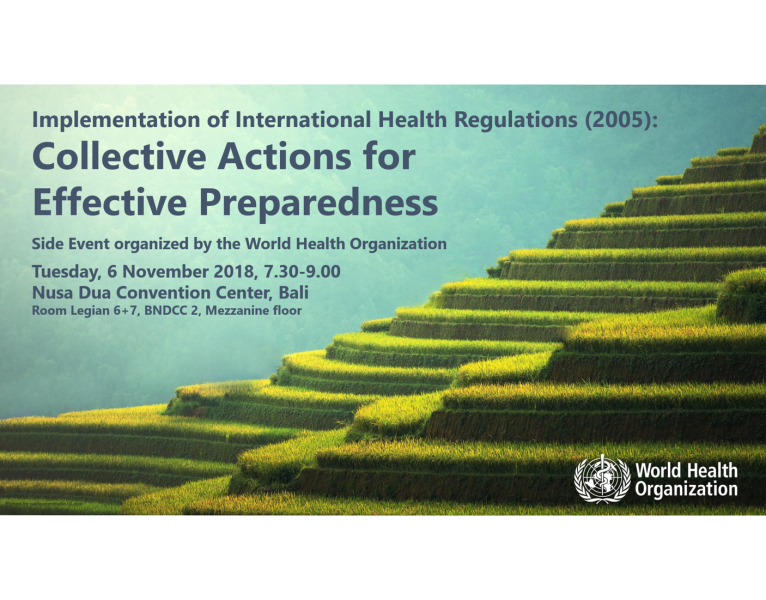
Implementation of International Health Regulations (2005): Collective Actions for Effective Preparedness
November 6, 2018
Background
The frequency and impact of disease outbreaks continue to take a heavy toll on populations and economies disrupting travel and trade around the world. Most recently they include the ongoing/recurring Ebola outbreak in Democratic Republic of Congo (DRC), the Zika virus outbreak; multiple cholera outbreaks in the Congo basin, Horn of Africa and the Middle East; Rift Valley fever in Eastern Africa, and yellow fever outbreaks in Angola and DRC. Despite the progress that has been made by the consorted effort by countries and partners, the world remains vulnerable and requires countries and health security stakeholders across sectors to continue to work together to accelerate IHR implementation and ensure the long-term sustainability of country capacities.
The objective of the side event is to build on the current momentum to identify actions that can support countries for building their capacities that is required under the IHR in a collective and coordinated manner. WHO, countries, partners and donors will share their ongoing work currently being done to fully implement the national action plans for health security (NAPHS). The discussions of this side-event will focus on the following thematic areas: Prioritization – Implementation – Monitoring and Accountability.
Panelists
A high level panel, composed of Minister and senior government policy maker, International Organizations will provide their views on the importance and urgency of supporting countries in implementing their IHR Monitoring and Evaluation Framework particularly the implementation of their national action plan for health security (NAPHS). H.E. Dr Jane Ruth Aceng, Minister of Health of Uganda, Dr Amara Jambai Director Diseases Prevention on behalf of Deputy Minister of Health of Sierra Leone, representatives of Norway, Finland (tbc), the World Bank (tbc), ASEAN (tbc), FAO and OIE, and other high level government policy maker, academia and other non-state actors. The discussion will focus on WHO’s IHR monitoring and evaluation data drives this prioritization process, resource mapping, alignment and financing preparedness will be highlighted in this side-event. Please do not hesitate to contact SPH team.